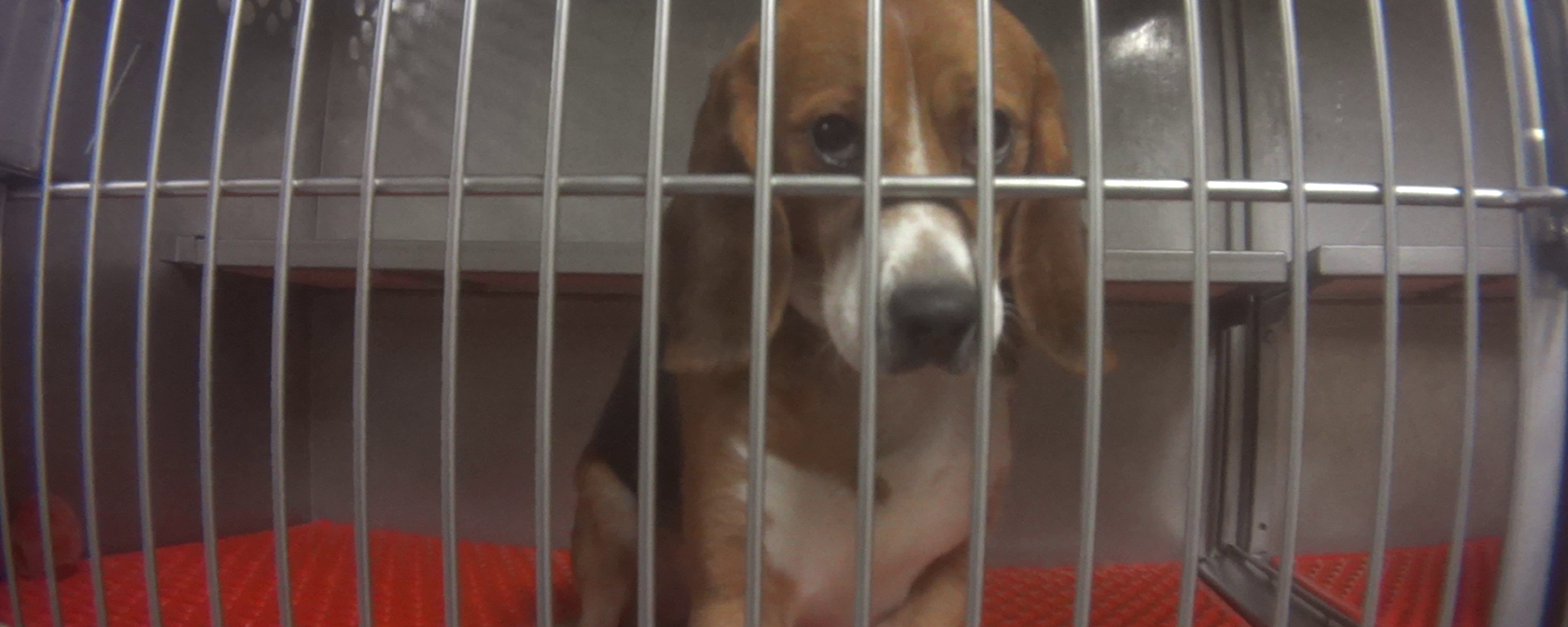By Sara Amundson and Kitty Block
Fewer animals will suffer in experiments in California laboratories thanks to a bill sponsored by the Humane Society of the United States and signed into law by Governor Gavin Newsom on Sunday. AB 357 was authored by Assemblymember Brian Maienschein, D-San Diego, and received wide bipartisan support throughout the legislative process.
The new law builds on one passed in 2000 that requires laboratories that test products such as pesticides, household products and industrial chemicals to replace animal tests with non-animal alternatives.
By expanding the list of non-animal alternatives that laboratories are required to use, the new law ensures that more animal experiments will be replaced. But getting government regulators to formally accept non-animal methods and companies to use them is another essential piece of the puzzle. To ensure compliance and to better understand the true scope of animals used in experiments, the law includes a first of its kind mandate that laboratories submit an annual report to the state with the number and type of animals and alternatives they have used to test pesticides, food additives and chemicals. We applaud California for leading the way to increase transparency about the number and species of animals used in these types of tests.
We estimate that more than 50 million dogs, cats, monkeys, rats and other animals are currently suffering in U.S. testing facilities and nearly 4.5 million of them are languishing in California laboratories. Due to limitations in federal law, animal testing facilities are only required to disclose information about certain animal species in their care, which does not include the vast majority of animals used in experiments in the U.S. Facilities are also not required to disclose what types of experiments they are performing on animals.
It’s not only animals who are affected by animal tests. We believe that a reliance on outdated animal experiments is preventing us from understanding how chemicals and household products might be negatively affecting people’s health and hindering potential cures and breakthroughs in medicine. Because animals and humans are very different, results from animal tests are often not applicable to people, yet we continue these largely futile attempts to find answers to human diseases by experimenting on animals. For example, extensive evidence demonstrates that results from toxicity tests in animals—tests that attempt to determine how a substance such as a medicine or chemical may negatively affect human health—often don’t accurately predict toxicity in humans. Approximately 90% of drugs ultimately fail in human trials after being tested in animals.
Some people wonder what other choices we have. Non-animal alternatives such as organs-on-chips, robotics, reconstructed human tissues, computer models and other advanced technologies are often far more accurate than using animals. Non-animal methods offer countless possibilities to improve our understanding of human biology and help us protect people and the environment from potential toxins in everyday products and will only continue to improve over time. Our goal is to ultimately phase out animal experiments in favor of the sophisticated non-animal technologies—which are under continual development—by collaborating with legislators, scientists, companies, government agencies and the public.
We are also working to reduce animal testing and reduce the suffering of animals in laboratories through public policy work in other states. For example, in Maryland, a new law will require that animal laboratories contribute to a research fund to provide grants for scientists developing non-animal research alternatives. And in Massachusetts, a bill similar to the one in California would mandate that companies use alternative test methods when they are available for products such as cosmetics, pesticides, industrial chemicals and household cleaners.
Every law that encourages a shift toward the advanced technologies already available and in development is a win for animals who are born just to suffer and waste away in testing lab cages. As we celebrate California’s new law, we’re committed to keep fighting until alternative technologies that are safer and more accurate have replaced animals in laboratories entirely.
Kitty Block is CEO of the Humane Society of the United States.




